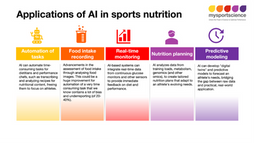Protein: A harmful or beneficial nutrient for bone?
- Eimear Dolan & Craig Sale
- Nov 25, 2018
- 4 min read
Updated: Sep 26, 2020

High protein intakes are considered essential to support the demands of training, and as such, athletes are recommended to consume more protein (between 1.2 and 1.6 g/kg/day, with up to 2.2 g/kg/day considered useful in some situations [1])than the general population (currently 0.8 g/kg/day). At the same time, there is a long held belief that higher protein intakes may actually have a negative influence on bone health. This is based on the “acid-ash hypothesis”, which suggests that animal proteins are acidic, and so can disrupt body pH. A balanced pH is essential for function of all body cells, and so the body will counterbalance an acidic state by increasing the availability of alkaline minerals, so normalising pH. The problem is, that most of the bodies alkaline minerals (e.g.,calcium) are stored within the bone. A chronic need to normalise pH in response to habitually high protein intakes, can, in the long term, result in bone mineral loss and weakening. Supporting this hypothesis is evidence that diets with a high potential renal acid load (PRAL), namely those high in animal proteins, are associated with a greater loss of calcium in the urine. This may be associated with lower bone mineral density, and an increased rate of bone loss [2].
The acid-ash hypothesis does have some possible merit, but it also describes just one of the pathways through which high protein intakes may theoretically influence bone, and is by no means the full story. For a start, the acid-ash hypothesis assumes that the calcium lost in the urine when protein intakes are high, comes from the bone. It seems, however, that higher protein intakes actually increase the amount of calcium that is absorbed from foods [3], and the increased calcium found in the urine when protein intake is high comes from this increase in calcium availability, and not from the bone, as was originally assumed.
Another important point, is that calculations of dietary acid load, are not only influenced by a high intake of acidic foods, but also by a low intake of alkaline foods. Most alkaline foods (e.g.,fruits and vegetables) are also rich in a wide range of micro- and phyto-nutrients that are essential to bone health. It is possible, therefore, that the poorer bone outcomes reported in individuals who consumed an acidic diet [2], were not actually due to high protein, but to a shortage of nutrient rich fruits and vegetables.
More importantly, evidence exists to show that not only is protein not harmful to bone, it can actually be beneficial [4]. Bone tissue is made up of ~50% protein, which makes it essential that athletes consume sufficient protein to support the increased rate of bone turnover caused by athletic training. Additionally, protein ingestion is known to increase the production of a number of hormones and growth factors, such as IGF-1, which are also involved in the formation of bone. Perhaps most importantly, the physical loads caused by exercise training are recognised as the main determinant of bone. Athletes in high-impact sports are frequently reported to have stronger bones that non-athletes. These loads come from a combination of both gravitational and muscular forces. It follows, therefore, that if higher protein intake positively impacts muscle mass function, and the capacity to undertake exercise training, it should also positively influence bone.
Considering all of these factors, it seems paradoxical to believe that higher protein intakes could really harm bone. Ultimately, the only way to determine the net influence of protein intake on bone, is to examine original studies that investigate this. A large number of these types of studies have been conducted, and the results have subsequently been statistically combined in high-quality meta-analyses [5]. Considering all available evidence, the answer is clear: Provided calcium intake is adequate, there is no evidence to indicate a negative influence of protein on bone, and instead a positive, albeit small, effect on bone mineral density and fracture risk has been identified. And so, the consensus is that protein is an essential nutrient, not only for muscle, but also for bone.
References:
1. Morton R, Murphy K, McKellar S, Schoenfeld B, Henselmans M, Helms E, et al. A systematic review, meta-analysis and meta-regression of the effect of protein supplementation on resistance training-induced gains in muscle mass and strength in healthy adults. Br J Sports Med. 2018;52:376–84.
2. Macdonald HM, New S a, Fraser WD, Campbell MK, Reid DM. Low dietary potassium intakes and high dietary estimates of net endogenous acid production are associated with low bone mineral density in premenopausal women and increased markers of bone resorption in postmenopausal women. Am J Clin Nutr. 2005;81:923–33.
3. Kerstetter J, O’Brien K, Caseria D, Wall D, Insogna K. The impact of dietary protein on calcium absorption and kinetic measures of bone turnover in women. J Clin Endocrinol Metab. 2005;90:26–31.
4. Dolan E, Sale C. Protein and bone health across the lifespan. Proc Nutr Soc. 2018;10.1017/S0029665118001180.
5. Rizzoli R, Biver E, Bonjour J, Coxam V, Goltzman D, Kanis JA, et al. Benefits and safety of dietary protein for bone health — an expert consensus paper endorsed by the European Society for Clinical and Economical Aspects of Osteopororosis , Osteoarthritis , and Musculoskeletal Diseases and by the International Osteoporosis. Osteoporosis International; 2018; 10.1007/s00198-018-4534-5.
6. Papageorgiou M, Dolan E, Elliott KJ, Craig S. Reduced energy availability : implications for bone health in physically active populations. Eur J Nutr. 2017; 57(3): 847-859.
















